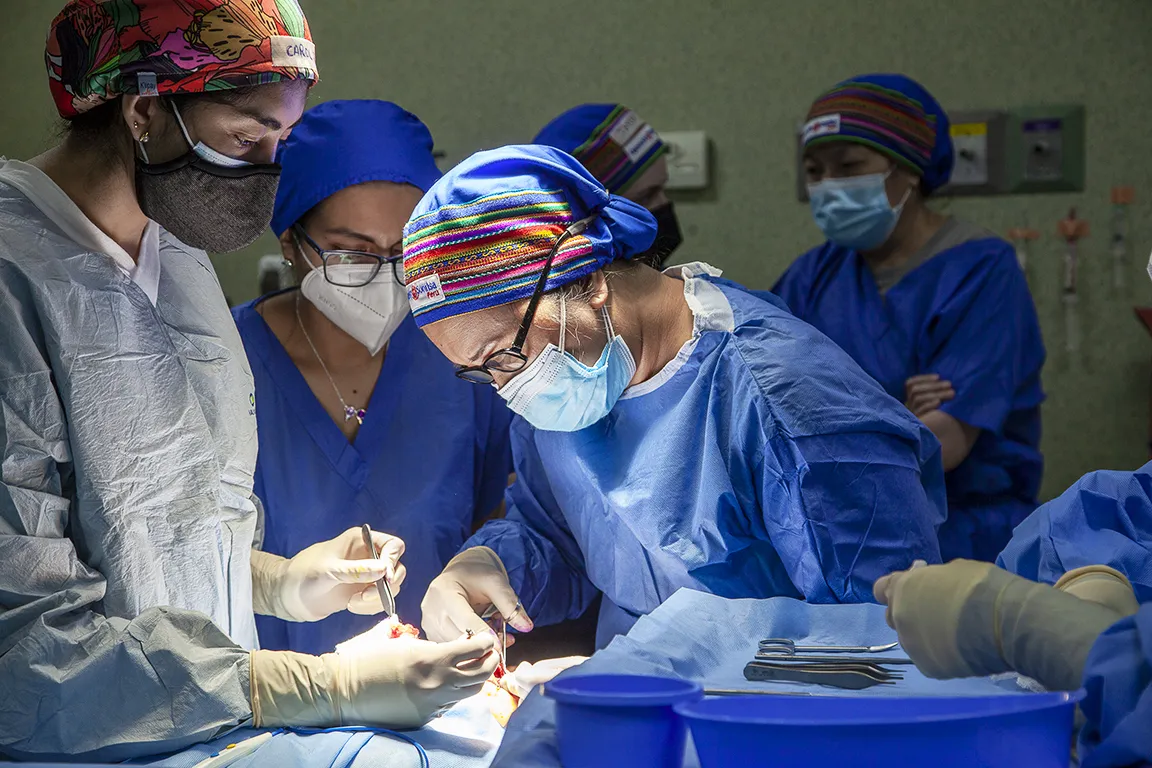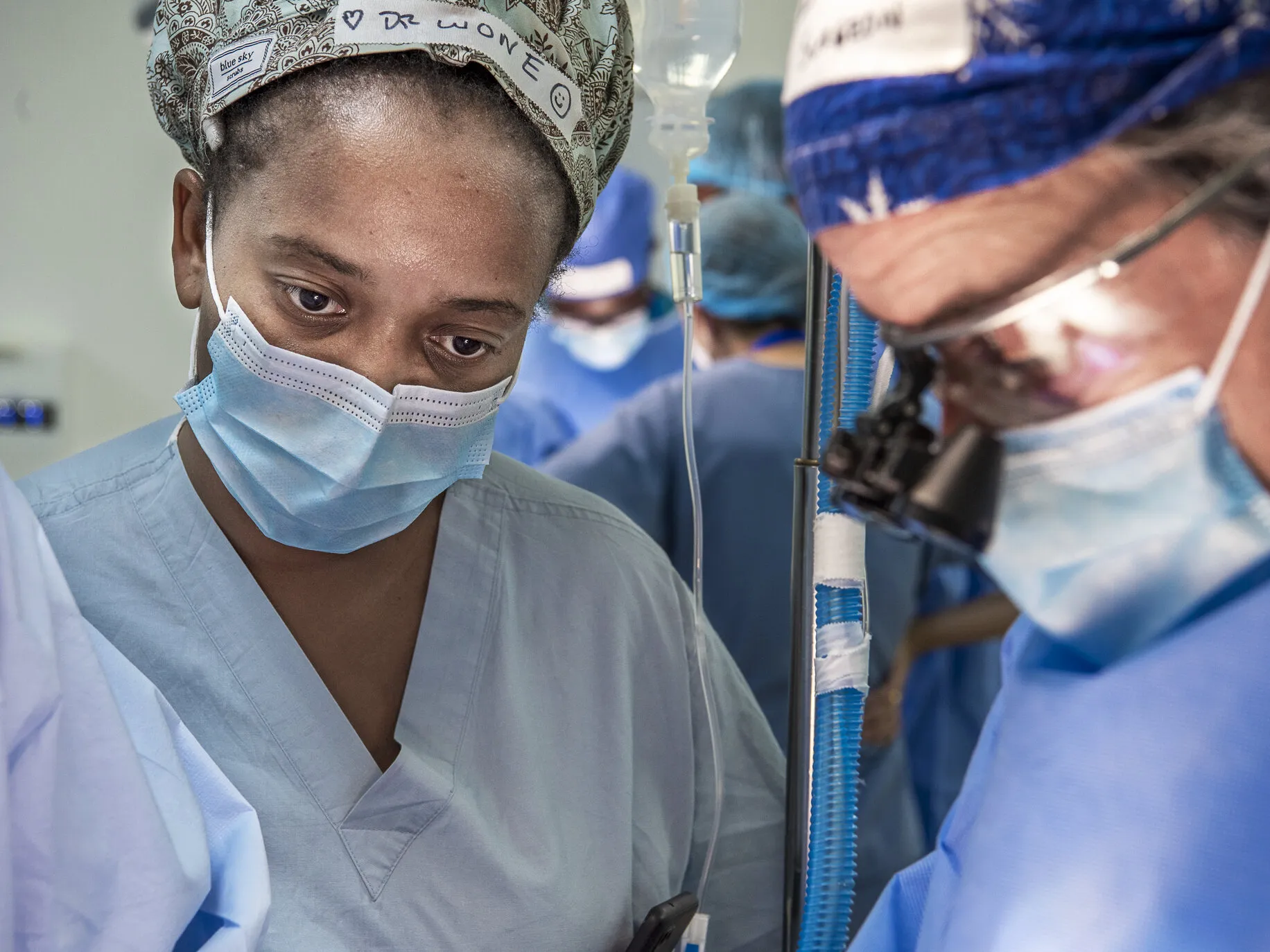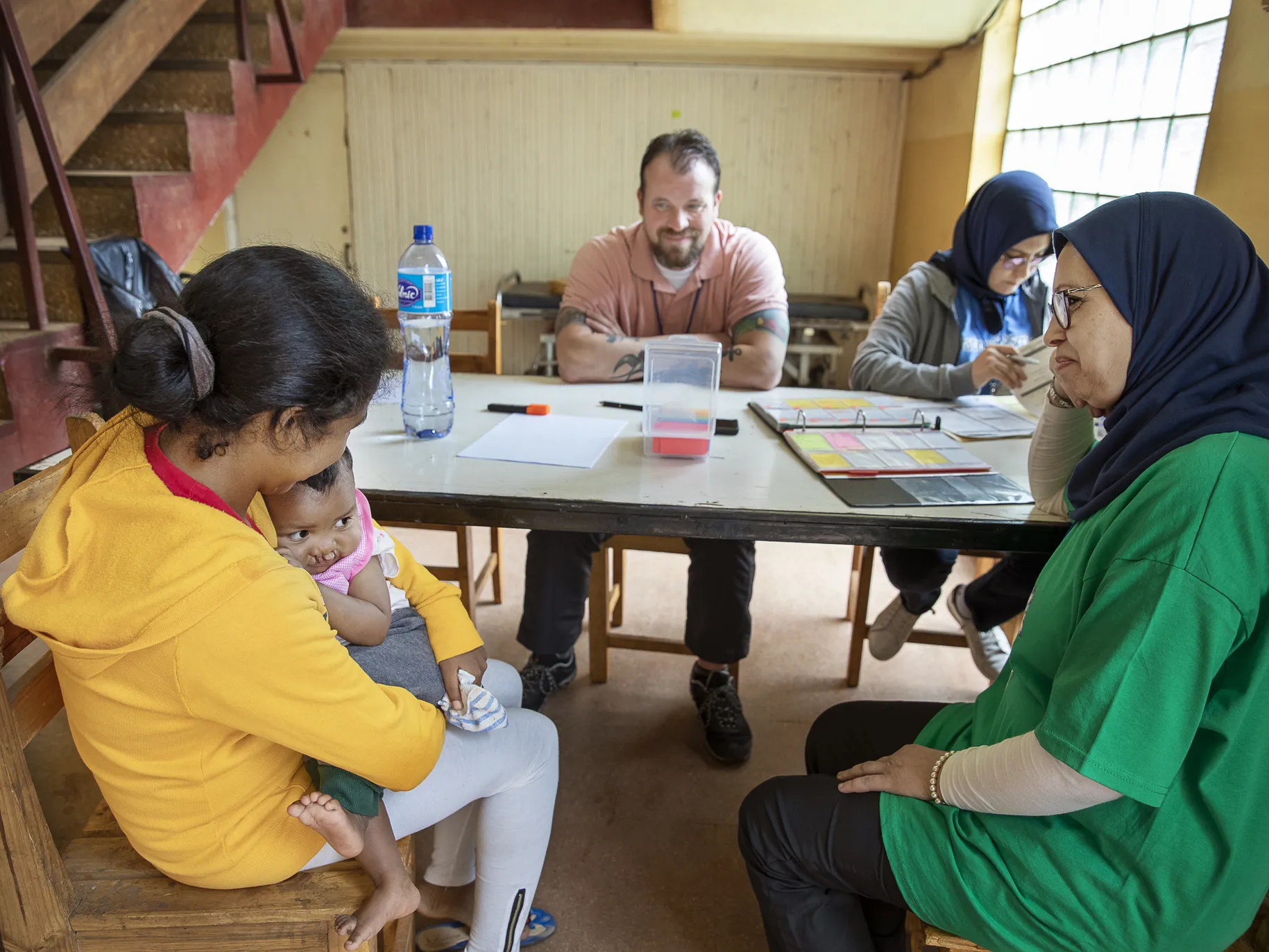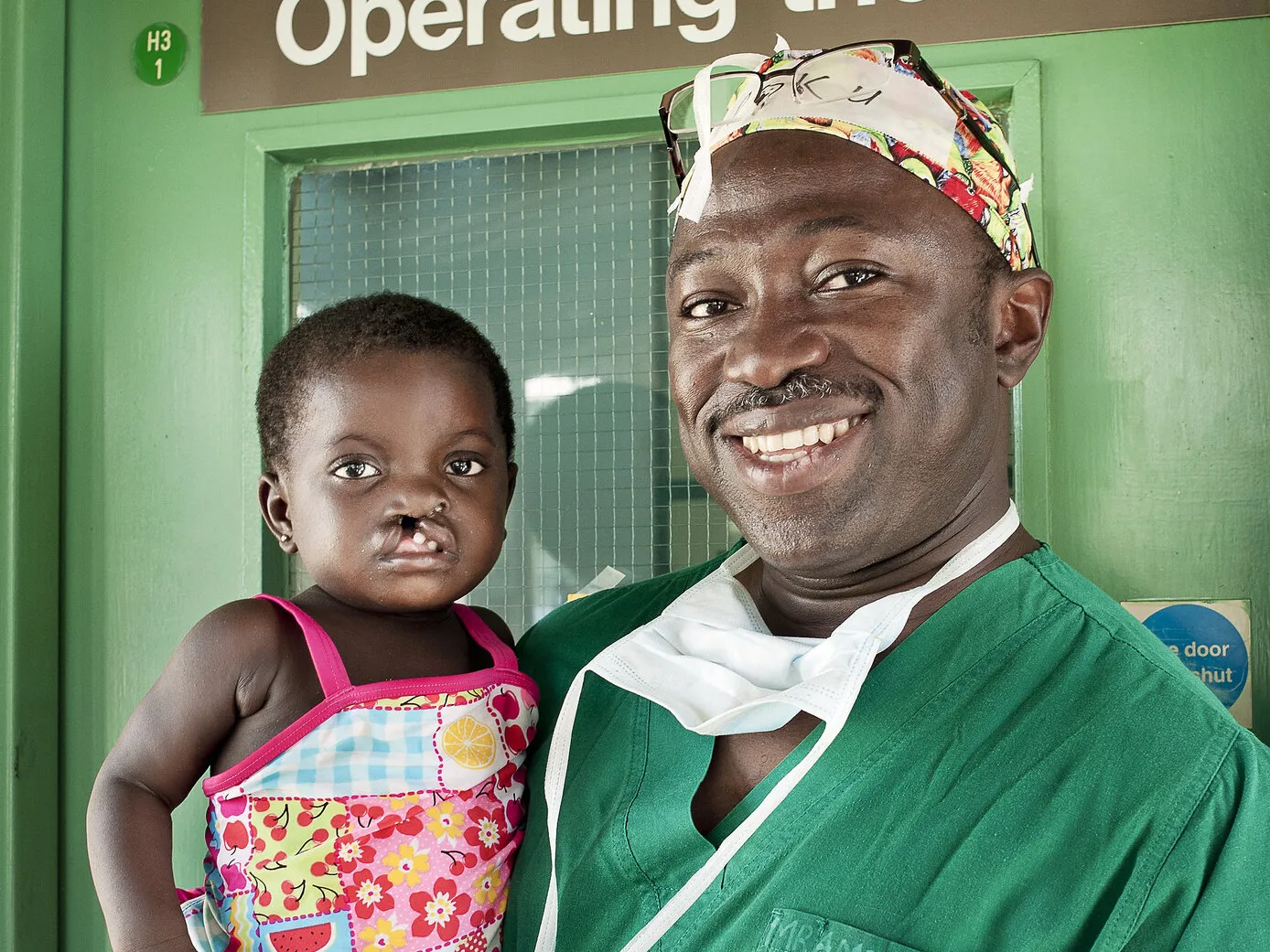Care Providers
Volunteer Voices: Women in Medicine, Lima, Peru
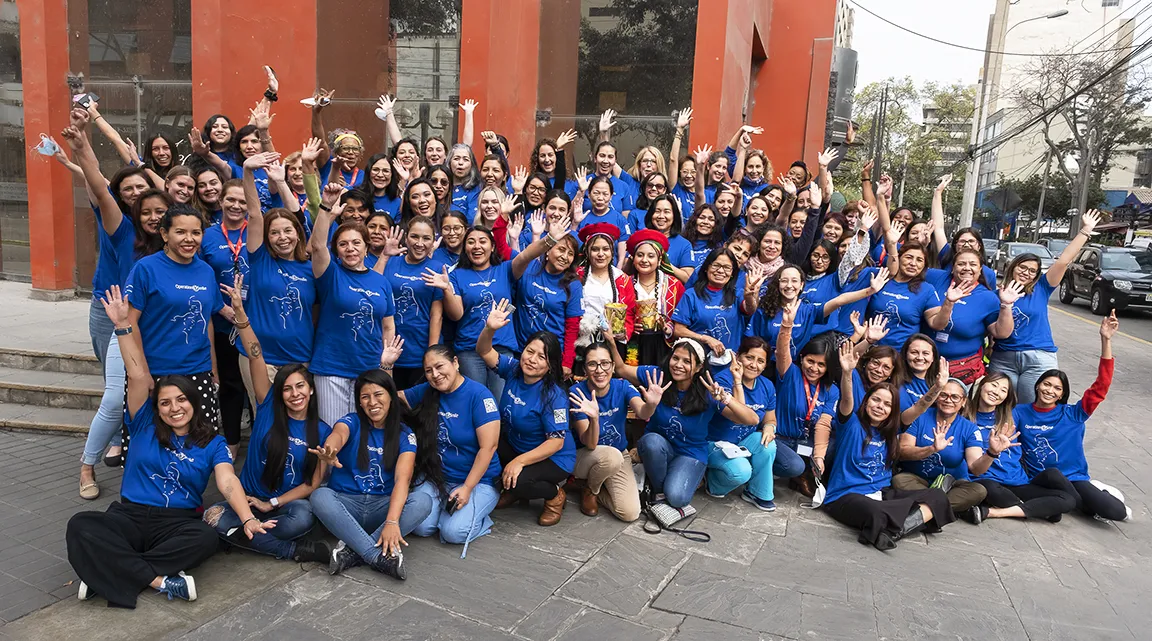
“Who runs the world? Girls,” said longtime Operation Smile volunteer Barbara Higgins – and, of course, Beyoncé.
But “(Operation Smile’s female volunteers) were doing it before Beyoncé sang the song,” Barbara quipped as she managed the program’s psychosocial care station.
Barbara was a part of the all-female team – comprised of 120 volunteers from 15 countries – that powered Operation Smile’s recent Women in Medicine surgical program in Lima, Peru. Marking the organization’s third program conducted entirely by women, the volunteers provided more than 70 cleft surgeries in the span of five days in June 2022.
“Women who are the heads of the household, taking care of children, are really capable of managing and orchestrating opportunities that help humanity,” like this surgical program. “I am just proud to be a part of it,” said Barbara, who currently serves as a docent for Operation Smile’s Anthony L. and Hideko S. Burgess Interactive Learning Center.
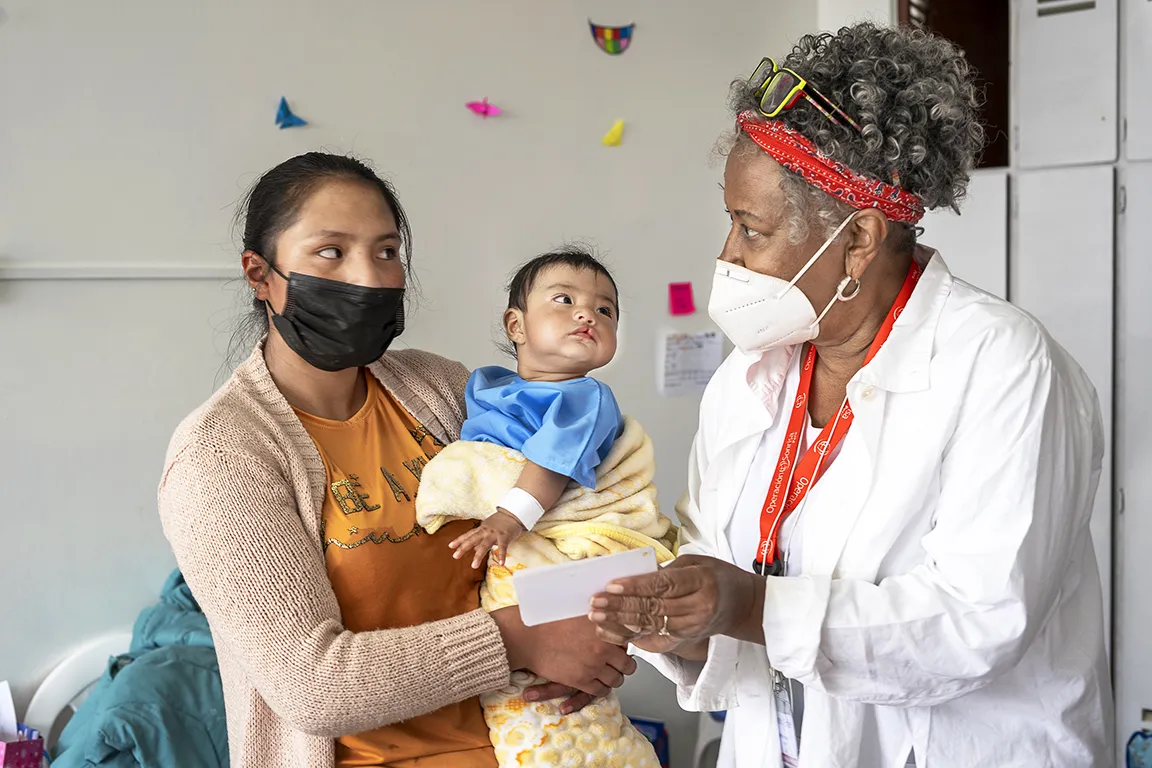
An Operation Smile signature initiative pursuing the goal of providing access to safe surgery and cleft care for 1 million patients over the next decade, Women in Medicine aims to close the gender gap in health care leadership so that more patients can receive care in more places.
According to the World Health Organization, 70% of health care workers globally are women, but only 25% hold senior leadership positions.
By creating leadership and mentorship opportunities and inspiring more women to pursue careers in health care, the initiative provides a model solution for one of the world’s most pressing problems: The Lancet Commission on Global Surgery estimates that 143 million more surgeries are needed every year. This would require 2.2 million more surgeons, anesthetists and obstetricians providing care.
Yet it can be difficult for women to access the same leadership opportunities as men: 25% of female volunteers surveyed at the first Women in Medicine program in Morocco in 2020 said they struggled to find mentorship and guidance in their career despite wanting it.
Dr. Lora Mae De Guzman, a cleft surgeon from the Philippines, wants to change that.
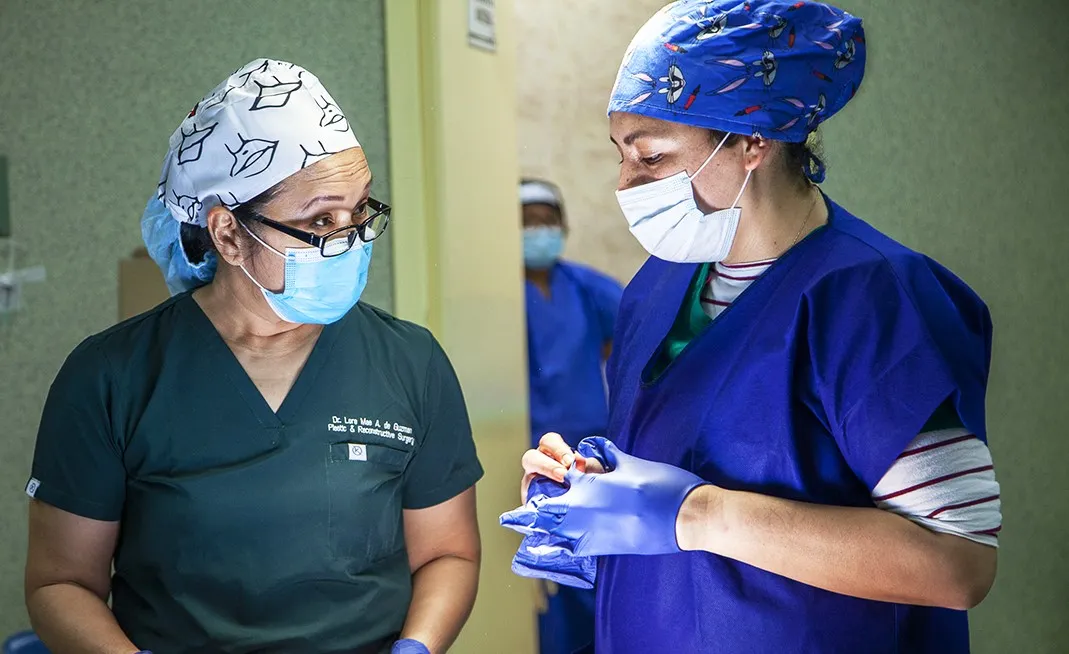
“We have the intelligence, but we also have to be up there in the leadership area so that we have more equality for the future for all women,” she said.
“We, by culture, are built differently,” said Sayuri Roa, a psychosocial care specialist from Peru. “We have been left out of a lot of different places. It is important to give a voice to every human being, and we are a part of that,” she shared.
Women in Medicine programs also provide female medical volunteers with a unique experience to mentor and lead without gender-based expectations.
“We have the opportunity to provide our opinion,” shared Midori Hanayama, a speech-language pathologist from Brazil. “If we are in a group only with women, I think it’s a great opportunity for all of us to show that we are also able to lead and decide,” she added.
Dr. Laura Melloni, a cleft surgeon from Mexico, values the comfortable learning environment that comes with the all-women program.
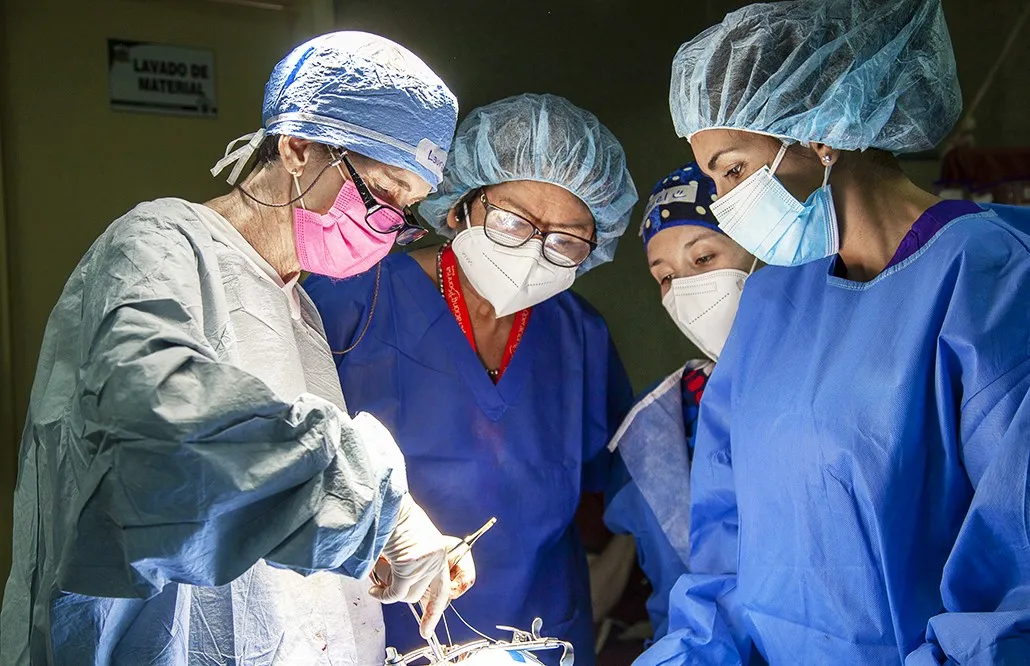
“A lot of people know different kinds of work that they do in their countries,” she said. “You learn and teach at the same time.”
And while they may come to the program with different skills, there’s a common thread among them: love for their patients.
“We have so many different professionals that are so passionate about what we are doing, and it is incredible to see the love each one of us has for these kids,” said Sayuri. “You see when we talk, we talk from the heart. It is really amazing. That is my favorite part.”
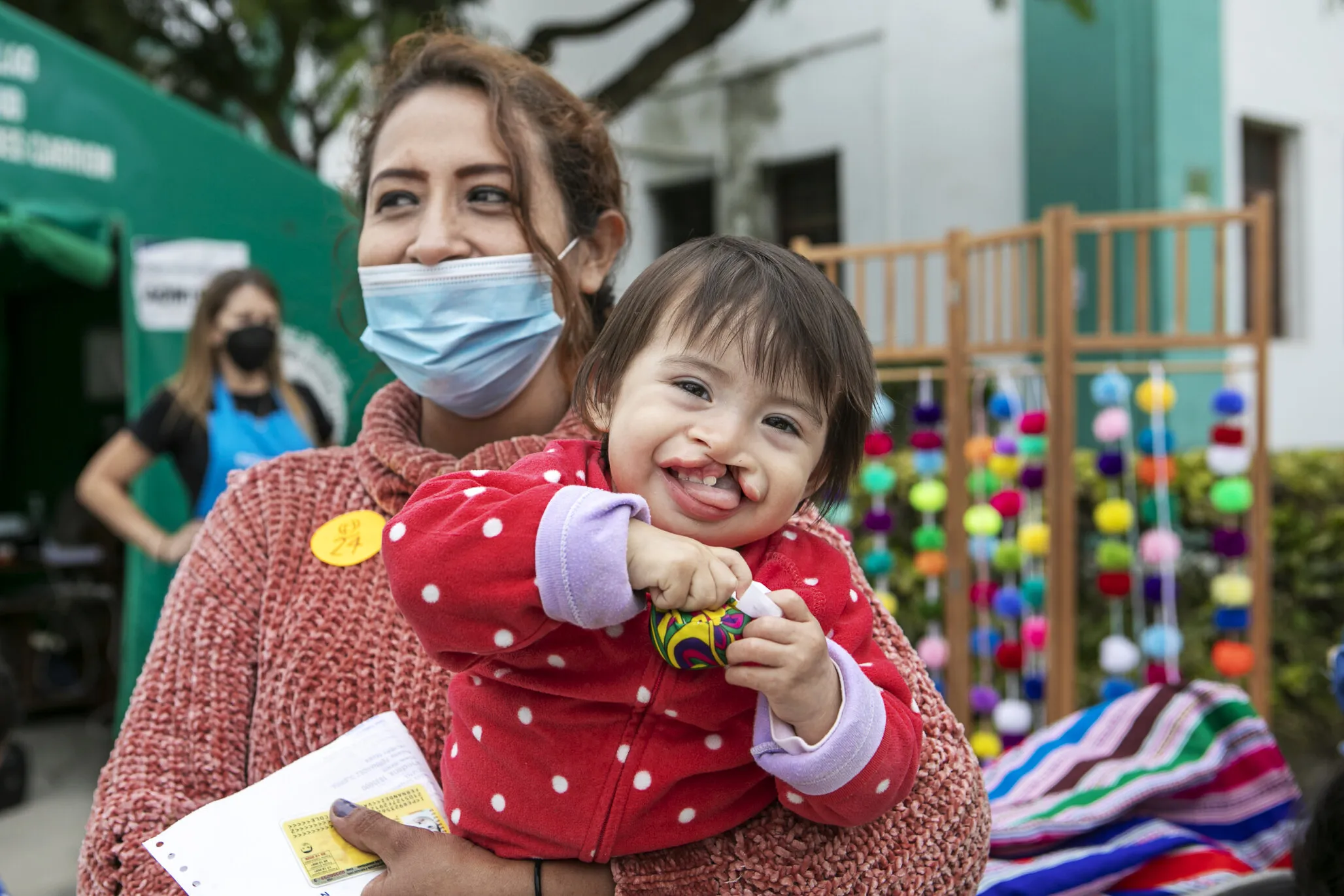
Members of the all-female program team recognized that women lead differently, often leaning into qualities that are considered soft skills.
For Midori, it’s sensitivity. During a multidisciplinary discussion with the plastic surgeon, the psychologist, the local manager, and the patient, Midori said she “could feel the difference.”
“The care, the way we care about other women, is different,” she explained.
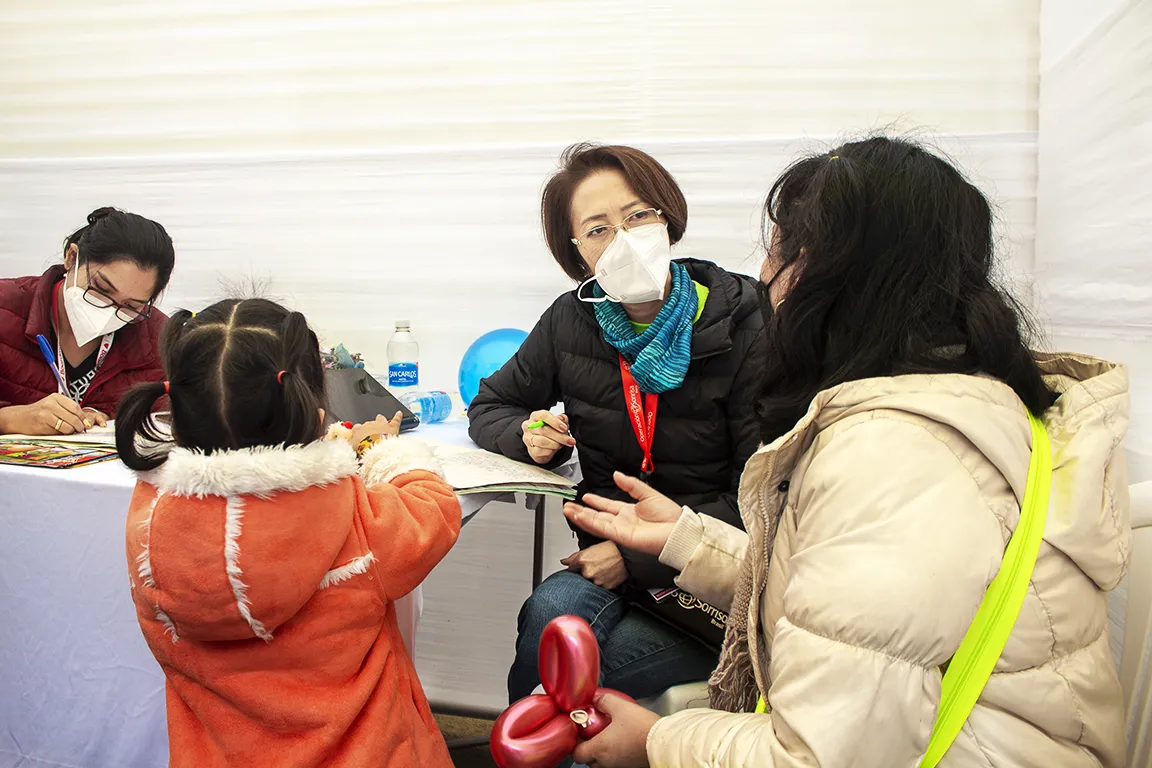
For Laura, it’s empathy. “(The fathers) work incredibly with the kids, but they sometimes leave all the questions of the kids to the mother, so I think there is more empathy in that,” Laura said. “They feel more identified with you than in a man,” she added.
Camila Garcia, a student volunteer from Newton College in Peru, said being a part of such an effort is empowering. “During these times, women are trying to have more opportunities. … It opens up our imagination,” she said.
This initiative allows women to develop their unique skills together. Excited to learn from her female colleagues, Lora Mae said, “Women have more meticulous hands. I want to see them work because most of the time when we work, there are a lot of male surgeons, so we see how they do it.”
And she was able to hone those techniques, alongside a team of strong women to create something magical.
“Surgery is the magic moment,” Lora Mae said, “and this magic moment includes everything. All the people that work in this time … We, have to have the nurse, the instruments, the suture, the anesthesiologist. Everything combined in that moment, in that hour, you can change people.”
